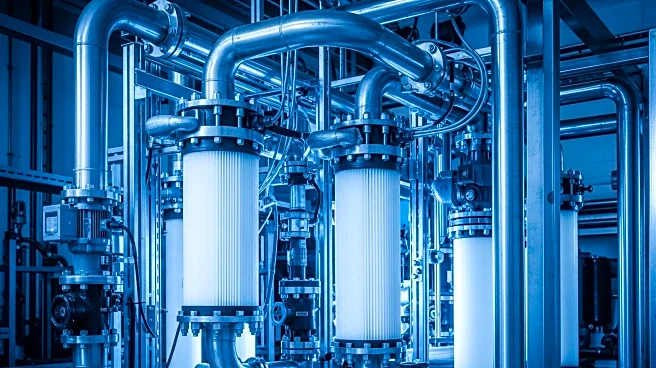What's Happening?
The article discusses the evolving role of filtration technologies in industrial settings, highlighting their importance in protecting equipment from contaminants, purifying air and liquid streams, and safeguarding personnel. Filtration systems are becoming more intelligent, integrating sensors and IoT technology to analyze contaminants in real-time. This advancement allows for predictive maintenance and optimization of industrial processes. The article also explores the application of filtration technologies in space exploration, emphasizing the need for robust and autonomous systems in extreme environments.
Why It's Important?
The development of advanced filtration technologies has significant implications for various industries, including aerospace, semiconductors, and electronics. By enhancing the efficiency and reliability of filtration systems, companies can reduce downtime, improve product quality, and ensure the safety of their operations. The integration of digital intelligence into filtration systems represents a shift towards more proactive and data-driven industrial processes. Additionally, the application of these technologies in space exploration could lead to innovations that benefit Earth-based industries, particularly in terms of sustainability and resource management.
What's Next?
As industries continue to adopt smarter filtration systems, there will likely be increased investment in research and development to further enhance these technologies. Companies may focus on creating more resilient and autonomous filtration systems that can operate in diverse environments, including space. The demand for predictive analytics and IoT-enabled solutions is expected to grow, driving advancements in sensor technology and data processing capabilities. This trend could lead to new business opportunities and partnerships across sectors, particularly in high-tech and environmental industries.
Beyond the Headlines
The shift towards intelligent filtration systems raises ethical and legal considerations, particularly regarding data privacy and security. As these systems become more integrated into industrial processes, companies must ensure that data collected from filtration systems is protected and used responsibly. Additionally, the development of autonomous filtration technologies may impact labor markets, as fewer personnel may be required to manage and maintain these systems. This could lead to a need for workforce retraining and adaptation to new roles within the industry.









